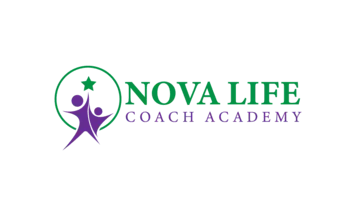Life coaching is a powerful career path for those passionate about helping others. However, choosing the right Life Coaching Certification Program can be tricky.
With so many options available, how do you know which one is the best fit?
A well-rounded certification should offer strong foundational knowledge, practical experience, and support for professional development.
Let’s explore some key factors to consider when selecting a certification program that aligns with your career goals.
Enroll in a life coaching certification program today to make a difference.
Accreditation Matters
One of the first things to check when selecting a Life Coaching Certification Program is whether it’s accredited. Accreditation ensures that the program follows high standards, recognized by industry leaders like the International Coaching Federation (ICF). The following are the benefits of choosing an accredited program:
Quality Assurance: Accredited programs adhere to rigorous standards, ensuring the education you receive is top-notch.
Industry Recognition: Completing an accredited program gives you credibility in the professional world.
Accreditation offers a seal of approval that your education meets the industry’s best practices, making it easier to establish your coaching career.
Curriculum and Learning Methods
A well-designed Life Coach Certification Program should have a curriculum that covers core coaching techniques, psychology fundamentals, and specialized areas based on different client needs. It should also focus on hands-on learning. Let’s explore what a good curriculum should include:
Core Coaching Skills
A solid foundation in coaching skills is critical. This includes:
Active Listening: Being able to truly understand your clients.
Adequate Questioning: Asking the right questions to guide your clients.
Make sure the curriculum includes both theoretical and practical components.
Specialization Options
Many programs offer specialization in areas like executive coaching or relationship coaching. These are excellent if you already have a niche in mind.
Flexibility and Duration
Another factor to consider is the flexibility of the program. Some people need a self-paced learning environment, while others prefer a structured schedule. Following are a few considerations:
Time Commitment: Can you complete the certification within a time frame that works for you?
Online or In-Person: Many programs, such as Nova Life Coach Academy, offer online and in-person options.
The right program should fit into your life, not vice versa.
Support and Mentorship
Coaching is a people-centered profession, so the best Life Coaching Certification Programs offer strong mentorship and support throughout your training. Let’s explore how mentorship plays a role:
Access to Mentor Coaches
Having access to experienced coaches who can guide you is invaluable. They can help with role-playing sessions, feedback, and real-world advice.
Peer Support
A supportive community of learners can enrich your experience. Check if the program fosters a network of peers.
Practical Coaching Experience
Theoretical knowledge alone isn’t enough. Your program should provide opportunities for practical experience. Here’s why:
Practice Makes Perfect: Real coaching sessions will build your confidence.
Feedback: Practical experiences allow for valuable feedback to fine-tune your skills.
Practical coaching is one of the best ways to prepare for a successful career.
Affordability and Payment Plans
Cost is another factor to consider. While some programs may seem expensive, many offer payment plans to make the investment more manageable. Let’s explore why affordability matters:
Return on Investment: The value you receive from the program should justify the cost.
Financing Options: Many accredited programs offer flexible payment options.
Make sure to pick a program that aligns with both your budget and career aspirations.
Ongoing Development and Alumni Support
Learning doesn’t stop after certification. A good program will offer continued learning opportunities and alumni support. The following are key points to consider:
Continued Learning
Many programs provide post-certification workshops and advanced courses to help you stay up-to-date with industry trends.
Networking Opportunities
An active alumni network can be helpful for referrals and job opportunities.
Closing Notes
Choosing the right Life Coaching Certification Program is a big decision, one that requires thoughtful consideration.
Look for accreditation, a well-rounded curriculum, flexibility, and strong mentorship to ensure you invest in a program that will set you up for long-term success.
For a quality certification, consider reputable institutions like Nova Life Coach Academy. These offer the training and support needed to thrive in this rewarding field.
Your future in life coaching starts with the right certification.
Frequently Asked Questions
How long does a Life Coaching Certification Program usually take?
Most programs can be completed within a few weeks to a year, depending on the intensity and format of the course.
Do I need to specialize in a particular coaching area?
Specialization is optional but can give you an edge if you want to focus on a specific niche, such as executive or health coaching.
Can I complete the certification online?
Yes, many programs, including some accredited by the ICF, offer online formats for flexibility.
Is accreditation necessary for all coaching programs?
Accreditation isn’t mandatory but strongly recommended for credibility and better career prospects.
What are the costs associated with a Life Coaching Certification Program?
Prices range greatly, but for most complete programs, plan between $1,000 and $5,000.




